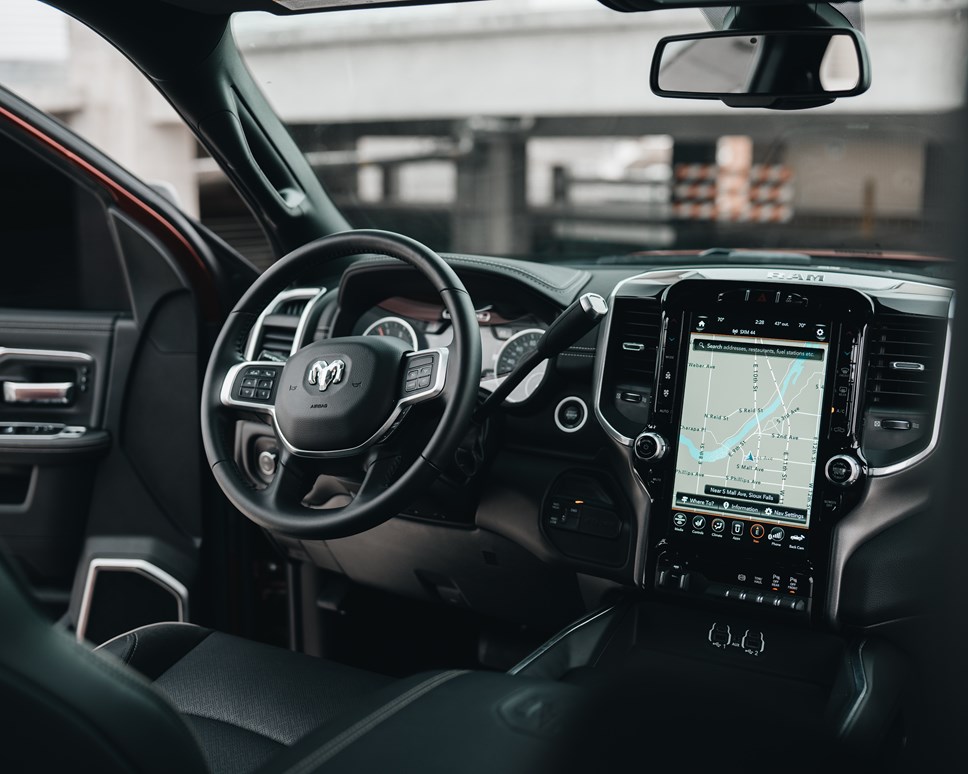
Not AV’ing it: 45% of UK population don’t like the idea of autonomous vehicles
- 38% aren’t keen on the idea of their family and friends in a driverless car
- 26% of men like the idea, compared with just 13% of women
The prospect of driverless cars on UK roads is becoming more and more of a reality, but Go.Compare car insurance asked over 2,000* Brits for their thoughts on autonomous vehicles (AVs) and found that almost half (45%) dislike the idea of technology taking over at the wheel anytime soon.
New driving-assist technology – which can steer and accelerate for you, as well as monitoring your focus on the road – has been permitted for road use by the Department for Transport for the first time in Europe, with the launch of Ford’s Mustang Mach-E earlier this month. And as more and more autonomous driving capability arrives, a report published by the Department for Transport predicts that AVs will account for 40% of car sales by 2035.**
However, despite the large sums of money invested in developing driverless cars, it appears that most Brits are unsure whether they’d actually want to travel in one.
Go.Compare asked over 2,000 Brits for their thoughts on AVs and found that:
- 45% of people say they dislike the idea of a driverless car,
- and a further 38% of people don’t like the idea of their family and friends in a driverless car.
- 26% of men like the idea, compared with just 13% of women,
- 53% of respondents said that they definitely won’t be using a driverless car.
- Younger Brits were the most optimistic with 32% of 18-24-year-olds saying they “like” the idea of a driverless car.
Ryan Fulthorpe, Go.Compare’s car insurance spokesperson said on the research: “While we’re still a way off AVs being an everyday occurrence on UK roads, it appears that may actually suit a lot of motorists for the moment, as they’re not quite ready for this type of travel.
“It’s understandable that there’s some reluctance as the use of AVs has always seemed like a futuristic idea, but with Ford and Nissan both making significant in-roads with the technology, and other manufacturers undoubtedly looking to the future, it’s fast becoming a reality. However, if we want to promote mainstream adoption of this type of travel, the general public will understandably need to see more and more proof that the technology is sound and is a safe way to travel, as well as it having other benefits, such as easing congestion in cities.”
Go.Compare has previously published a report on the adoption of driverless cars, which can be found here: https://www.gocompare.com/motoring/britain-ready-for-autonomous-vehicles/.
- Ends –
Contact Information
Rosie Johns
Notes to editors
Notes to editors
*Data source: On 14th-17th April 2023, from a Maru Public Opinion online survey of 2068 randomly selected Great British adults undertaken by Maru/Blue. For comparison purposes, a probability sample of this size has an estimated margin of error (which measures sampling variability) of +/- 2.2%. The results have been weighted by age, gender, region and social grade to match the population, according to Census data. This is to ensure the sample is representative of the entire adult population of Great Britain. Discrepancies in or between totals are due to rounding.
**https://assets.publishing.service.gov.uk/government/uploads/system/uploads/attachment_data/file/1099173/cam-2025-realising-benefits-self-driving-vehicles.pdf
For further information please contact:
Lynsey Walden – lynsey.walden@gocompare.com
Kath Chadwick – Kathryn.chadwick@gocompare.com
Or you can call 02920 020360.
Keep up-to-date with Go.Compare on Twitter; @Go.Compare
About Go.Compare
Go.Compare is a comparison website that enables people to compare the costs and features of a wide variety of insurance policies, financial products and energy tariffs.
It does not charge people to use its services and does not accept advertising or sponsored listings, so all product comparisons are unbiased. Go.Compare makes its money through fees paid by the providers of products that appear on its various comparison services when a customer buys through the site.
When it launched in 2006, it was the first comparison site to focus on displaying policy details rather than just listing prices, with the aim of helping people to make better-informed decisions when buying their insurance. It is this approach to comparing products that secured the company an invitation to join the British Insurance Brokers’ Association (BIBA) in 2008, and it is still the only comparison site to be a member of this organisation.
Go.Compare has remained dedicated to helping people choose the most appropriate products rather than just the cheapest and works with Defaqto, the independent financial researcher, to integrate additional policy information into a number of its insurance comparison services. This allows people to compare up to an extra 30 features of cover.
Go.Compare is part of Future Plc and is authorised and regulated by the Financial Conduct Authority (FCA).
More information can be found here www.gocompare.com or here https://www.futureplc.com/brands/.
